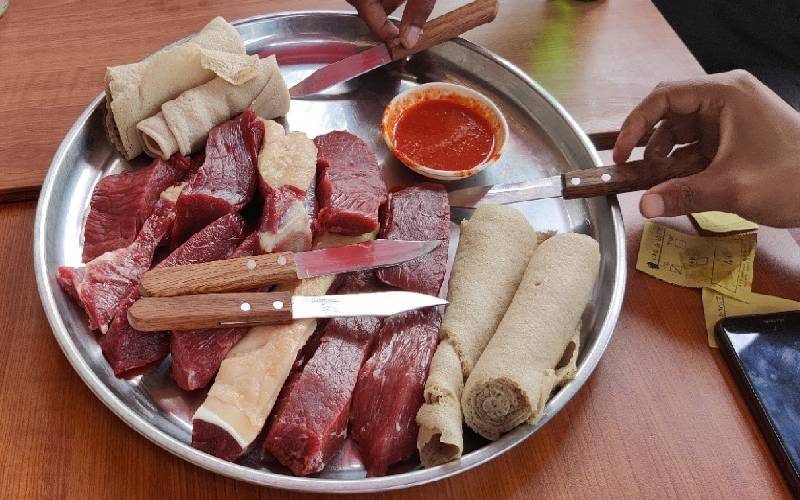×
The Standard e-Paper
Truth Without Fear

Ethiopian raw meat delicacy. Legend has it that this centuries-old tradition was a wartime invention by fighters hiding out in the mountains that needed quick meals without attracting the attention of the enemy with fire, smoke, or smell.
"The Italians should come to Sahati only if I could go as Governor to Rome.”- Ras Alula